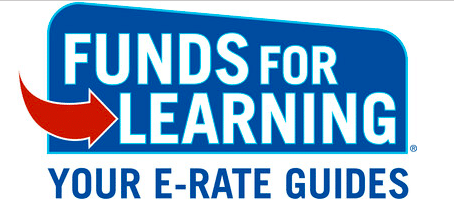Funds For Learning, the leading E-rate compliance services firm for schools nationwide, launched its 14th annual E-rate survey last month. The survey enables applicants to provide confidential feedback about essential aspects of the federal E-rate program, which can help shape its future direction. Funds For Learning submits responses directly to the FCC. E-rate applicants are encouraged to submit their anonymous feedback by June 30, 2024.
I had a chance to speak with Brian Stephens, CEMP at Funds for Learning about the particulars. The survey aims to gather experiential information from schools and libraries participating in the E-rate program to assess its effectiveness and collect feedback for potential improvements. We discussed the evolving landscape of the program, including the increasing importance of cybersecurity and potential expansions such as making hotspot services eligible for E-rate discounts. Have a listen:
The group has customized its 2024 survey to cater to stakeholders’ needs in response to pressing issues like cybersecurity and the homework gap.
- Cybersecurity is a significant concern for E-rate stakeholders, especially as educational institutions adopt new technology initiatives into their curricula. The FCC has proposed a $200 million pilot program over three years to finance advanced cybersecurity products and services for schools and libraries. The pilot aims to gather data on applicants’ cybersecurity needs and associated costs to help guide potential rule changes in the future.
- Late last year, the FCC issued a Notice of Proposed Rulemaking (NPRM) to make off-campus Wi-Fi hotspot services eligible for E-rate program discounts. This proposal received over 60 comments, with mixed support for integrating hotspot services into the E-rate program. Funds For Learning projects that such an integration could raise E-rate fund demand by 6.67 percent, roughly $198 million. Nonetheless, it argues that this improvement would boost remote learning capabilities and support the FCC’s commitment to educational equality while keeping E-rate funding within its $4.456 billion cap.
Last year, more than 2,100 applicants shared their opinions, highlighting the significance of collective input in shaping the future of educational technology through initiatives like the E-rate program. Key findings from the 2023 report include:
- 93% of applicants agreed that the E-rate program should provide support for comprehensive network security solutions.
- 88% of respondents acknowledged that the E-rate program facilitated faster Internet connections in education sites, with 86% reporting increased connectivity for students and library patrons.
- Insufficient internet access in the homes of students or library patrons is a significant issue in the communities of 74% of respondents. The report emphasized the need for equitable access to the internet, especially for off-campus use, to bridge the homework gap and ensure continuity of learning.
- Click here for the entire 2023 E-rate Trends Report.
The E-rate program has seen a significant overhaul in regulatory and procedural shifts throughout the 14-year history of the survey. E-rate stakeholders are encouraged to participate in the 2024 survey to influence the program’s direction and advocate for their needs. By voicing their opinions and sharing insights, applicants play a pivotal role in shaping the future of connectivity and educational technology.
The survey will remain open until June 30, 2024. The results will be compiled into the annual E-rate Trends Report, submitted to the FCC, circulated to Congress and the media, and shared with the general public.
The 2024 E-rate Applicant Survey can be found here.
To learn more about Funds For Learning, visit https://www.fundsforlearning.com/.


